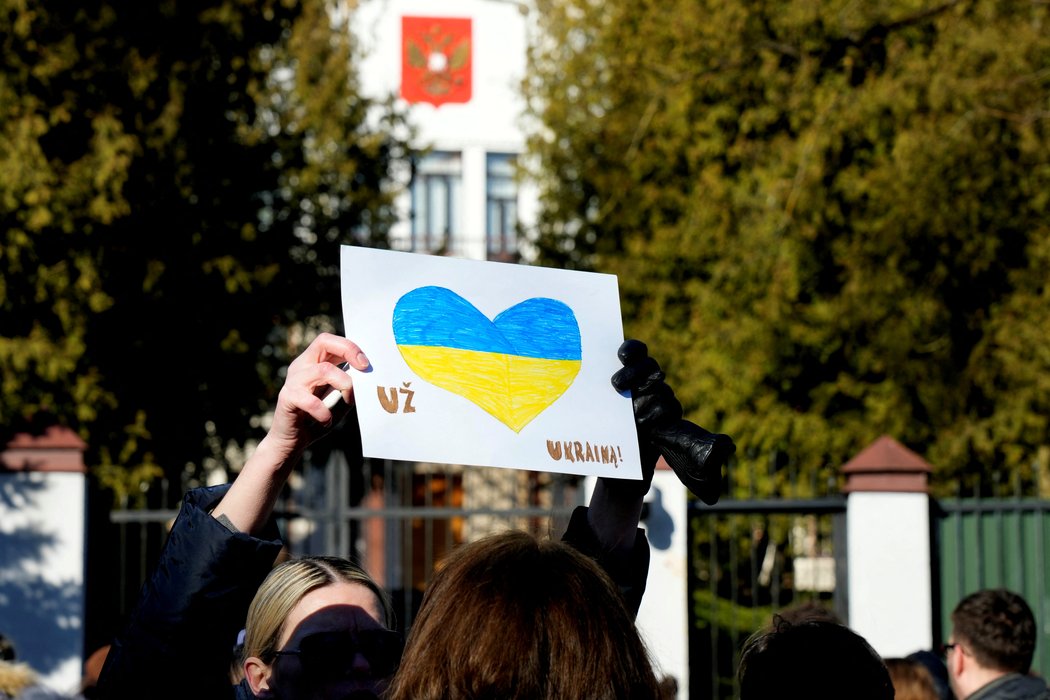
Introduction
Following Russian President Vladimir Putin's announcement about partial mobilisation in Russia, on 22nd September 2022, Lithuania’s Prime Minister Ingrida Šimonytė said that Lithuania does not have to save all Russian citizens from mobilisation. In her view, it would not be appropriate to grant asylum to those Russians who until now supported the war. According to Šimonytė, everyone seeking to be admitted must be evaluated according to his merits. Latvia, Estonia and Poland adopted a similar policy.
Earlier, on 8th September 2022, Lithuania announced an extension to the state of emergency along its borders with Belarus and Russia until 16th December 2022. Minister of Internal Affairs Agnė Bilotaitė said that such a measure is necessary to stop hybrid attacks from Belarus and Russia against Lithuania. According to the Lithuanian internal ministry, migrants have been used as a form of hybrid attack by Belarus against Lithuania. "Belarusian officials damage the physical barrier installed on the Lithuanian border with Belarus, organise the transport of illegal migrants to the state border and direct them to the territory of Lithuania." In their calculations, about 6,000 such asylum seekers will not be admitted to the country.
Lithuania completed a 502-kilometre steel wall along the border with Belarus at the end of August 2022. On 16th September 2022, Medecins Sans Frontieres (Doctors without Borders) said Lithuania's pushback policy, in place from mid-2021, is causing mental and physical suffering for migrants trying to cross the border illegally. They called on the Lithuanian government to urgently cease their cruel practices and respond with humanity to the needs of those trying to enter the country.
"It is unacceptable that the Lithuanian government is trying to normalise this mistreatment and denial of rights in response to the movement of people who have fled their countries out of desperation, in search of safety and a better life,” said Georgina Brown, MSF country manager in Lithuania.
According to a recent report by Amnesty International, those who managed to cross the border face unacceptable treatment. The report found that Lithuanian authorities have arbitrarily detained thousands of migrants, mostly from Africa and the Middle East, in prison-like centres where they have been held for months, and subjected to violations like beatings, abuse and racism. At the same time, people fleeing the war in Ukraine were welcomed with generosity.
"While Lithuania has rightly extended a warm welcome to tens of thousands of people fleeing Ukraine, the experience of the detainees we spoke with could not be more different. This raises serious concerns about institutional racism embedded within Lithuania’s migration system," said Nils Muižnieks, Amnesty's Europe Regional Director.
Expression
Ban on broadcasting and distribution of Russian and Belarusian media
On 22nd September 2022, the Seimas, the unicameral parliament of Lithuania, extended the ban on broadcasting and distribution of Russian and Belarusian Internet radio and television channels until 1st October 2024.
While some parliamentarians questioned the necessity of the ban, arguing that people find ways to reach prohibited content, most believe that such a ban is necessary to protect the Lithuanian public from misinformation and propaganda. The ban was supported by 113 members of the Seimas, only four abstained, and no members voted against it.
Previously, Russian TV channels were blocked in the country under a national state of emergency, but the measure was set to expire in September. Instead of prolonging the ban with the state of emergency, MPs decided to impose a two-year ban.
A few days before the voting in the Seimas, on 14th September 2022, the Radio and Television Commission of Lithuania (RTCL), Lithuania’s media watchdog, strongly advised that TV rebroadcasters and online distributors operating in Lithuania "avoid retransmitting" programmes of "entities established, directly or indirectly owned, controlled or financed" by Russia and Belarus.
Revising Russian textbooks
On 15th September 2022, Lithuania's education minister, Jurgita Šiugždinienė announced that the country's National Education Agency will revise all Russian-language textbooks amid Moscow's invasion of Ukraine. One Russian-language textbook that glorified Moscow and portrayed Russia as an attractive democratic state has already been withdrawn from circulation and schools and municipalities were informed that it must not be used or kept available in school libraries. According to Euronews, Lithuanian publishers have also been instructed by the government to review the learning resources they provide.
LGBTQI+ rights
On 5th August 2022, the Lithuanian Health Ministry announced that Health Minister Arunas Dulkys had approved the description of the procedure for diagnosing and treating gender identity disorder. The description defines the roles, responsibilities and powers of different actors in the health care system. According to the ministry’s statement, "this description will not only ensure the procedure for providing the service but will also allow Lithuania to meet its international obligations in the area of human rights, eliminating violations that have been recorded for more than a decade."
As Delfi.lt reports, in 2007, Lithuania lost a case at the European Court of Human Rights against a woman who wanted her documents to reflect her gender identity. “The court pointed out that Lithuania had no law regulating sex change operations. All subsequent attempts to adopt such a law in Lithuania failed, forcing the government to report every year on the progress made in ensuring the rights of transgender people.”